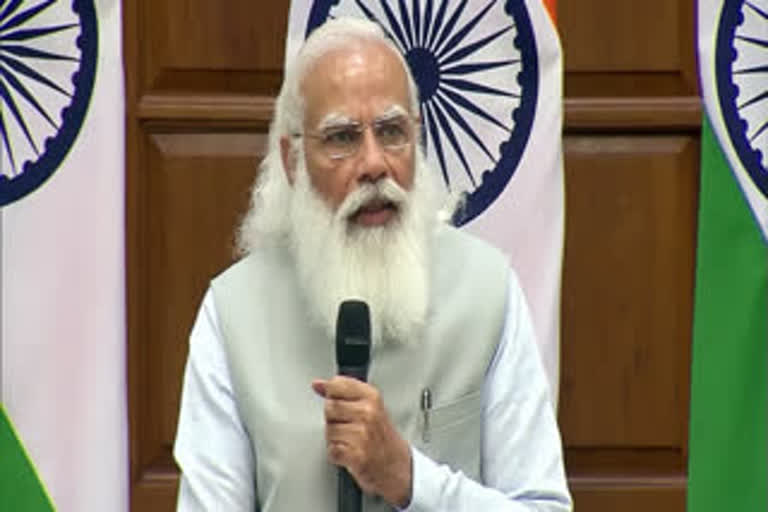New Delhi: Lok Sabha members Friday approved the Taxation Laws (Amendment) Bill of 2021 that allows the government to withdraw tax demands from Vodafone and Cairn India and 15 other cases where an UPA era amendment was used to raise tax demand for transfer of assets located in India by these companies. The passage of the Bill by the Lok Sabha paves the way for the Union government to withdraw tax demands from Vodafone and Cairn Energy provided they comply with other conditions of the Bill such as they would not claim cost of litigation, damages and will accept payment of tax recoveries collected from them without any interest.
It will end UPA era tax litigations not only with the 2 high-profile tax assessment cases involving Vodafone and Cairn Energy but in 15 other cases as well. Senior Congress leader and former finance minister P Chidambaram, who helmed the finance ministry between May 2004 to November 2008 and also between July 2012 to May 2014, welcomed the Taxation Laws Amendment Bill of 2021 passed by the Modi government. “On the withdrawal of the Retrospective Tax (Vodafone), I am glad that we have put an end to an issue that has been troubling us for 8 years,” Chidambaram said in a tweet on Friday after Lok Sabha cleared the Bill.
End of a complex tax dispute
The passage of the Bill also shows the belated recognition on the part of the government that a protracted litigation at international courts and appellate tribunals was not in the interest of the country as there were very slim chances of any relief to the government’s tax claims and on the other hand the retrospective taxation was hurting investor’s sentiment.
Vodafone, Cairn win arbitration
Both Vodafone and Cairn challenged the decision of India’s tax authorities at International Arbitration Tribunals as per the international treaty obligations and the Government of India lost both the cases. While Vodafone won the case in September 2020, Cairn won the case in December that year, in two separate arbitration proceedings initiated by the two companies.
Cairn moves to seize Indian property abroad
It was Cairn’s decision to move to the courts in nine countries, including the USA, UK, and France, to enforce the arbitration award by seizing Indian assets located abroad that finally forced the government’s hands to lay the matter to the rest by amending the tax laws to undo the 2012 amendment done by the then finance minister Pranab Mukherjee. After winning the arbitration award, Cairn started registering the Arbitration Award that directed the Government of India to pay approximately $1.2 billion plus interest and penalties to the UK based energy giant.
The company also moved to the US District Court for the Southern District of New York to seize India’s national carrier Air India’s property located in the USA. Media reports suggested that as a preventive measure Union government directed the state owned banks to withdraw money held in those countries where Cairn Energy had registered the award so that these assets could be saved from seizure. Secondly, Cairn’s move against the Air India assets in the USA had a potential to derail the government’s efforts to privatise the troubled national carrier, which has been incurring mounting losses for several years.
Cairn tax dispute
The Cairn tax dispute relates to year 2006–2007 when the parent company Cairn UK transferred shares of Cairn India holdings to its counterpart, Cairn India in an internal restructuring. In 2012, the then finance minister Pranab Mukherjee moved an amendment in the Income Tax Act to invalidate a Supreme Court judgement in a different tax case involving Vodafone.
The Supreme Court judgement was related to an initial tax demand of Rs 7,900 crore from Vodafone-Hutch deal but it was not upheld by the top court. The Income Tax Department had used the same provision to tax transfer of assets by Cairn to Cairn India and seized its assets and shared to recover the tax dues.
Vodafone tax dispute
In February 2007, Vodafone International Holding (a Netherland Company) purchased 100% shares of CGP Investments (Holding) Ltd (CGP Ltd) (a Cayman Islands Company) for $11.1 billion from Hutchison Telecommunications International Limited. In 2007, the income tax department raised a tax demand of Rs 7,900 crores on Vodafone-Hutch deal. The demand was challenged by Vodafone in Bombay High Court and then the Supreme Court of India.
The Supreme Court ruled in favour of Vodafone which prompted the then UPA government to amend the tax laws with retrospective effect to capture this kind of transactions for taxation purposes. After a nearly six-year long litigation process outside the country, the Government of India lost the case to Vodafone in September 2020. At the international arbitral tribunal, Vodafone invoked the bilateral investment and protection treaty between India and Netherlands. Under the treaty, both the countries have given the choice of Arbitration.



